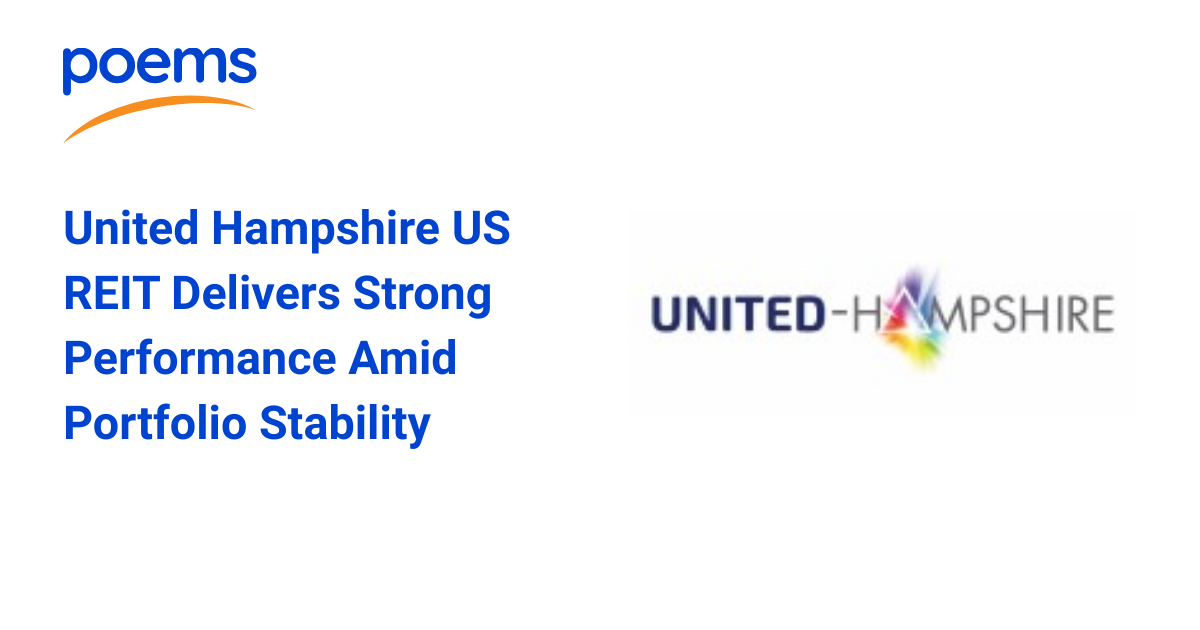Global share investing has long been an attractive opportunity for investors seeking to diversify their portfolios. However, the traditional approach to investing in foreign-listed stocks comes with challenges, such as opening a foreign brokerage account, managing currency conversion, and navigating different market trading hours.
To address these challenges, Singapore Depository Receipts (SDRs) was launched by the Singapore Exchange (SGX) as a simpler, more cost-effective solution for Singapore investors. SDRs provide access to foreign stocks while allowing trading in Singapore dollars (SGD) on the SGX.
This article explores what SDRs are, how they work, and why they are becoming an essential tool for investors in Singapore, who have the risk appetite to include foreign-listed shares in their investment portfolio.
What Are SDRs?
SDRs function like locally traded stocks on SGX, but represent shares of foreign-listed companies in the form of a depository receipt. This allows investors to buy and sell international stocks in SGD through their existing brokerage accounts during SGX trading hours.
The introduction of SDRs eliminates the need for additional paperwork, foreign exchange transactions, and separate brokerage accounts. Investors can now gain exposure to foreign companies without the complexity of direct foreign stock trading.
First three Thai-SDRs on SGX (launched on 30 May, 2023)
SGX introduced its first-ever SDRs in partnership with the Stock Exchange of Thailand on 30 May 2023 to offer investors exposure to major Thai companies:
- Airports of Thailand (TATD) – Thailand’s largest airport operator
- CP ALL (TCPD) – The company behind 7-Eleven in Thailand
- PTT Exploration & Production (TPED) – A leader in the energy sector
These SDRs provided investors with access to some of Thailand’s largest and most influential corporations without requiring direct investments in the Thai stock market.
Expanding SDR Offerings (launched on 1 April 2024)
On 1 Apr, 2024, SGX introduced five additional Thai SDRs across technology, finance, and industrial sectors:
- Advanced Info Service (TADD) – Thailand’s largest telecommunications provider
- Delta Electronics (TDED) – A leader in power electronics and automation solutions
- Gulf Energy (TGED) – A major player in Thailand’s power and infrastructure sector
- Kasikornbank (TKKD) – One of Thailand’s leading banks
- Siam Cement (TSCD) – A key industrial conglomerate in Thailand
With these additions, SDRs now cover over 40% of Thailand’s SET 50 index, offering investors a broad representation of Thailand’s stock market.
Hong Kong SDRs (launched on 30 October 2024)
Launched on 30 October, 2024, for the first time, Hong Kong SDRs made Hong Kong-listed companies available on SGX, allowing investors to tap into the Hong Kong market via Singapore. These new listings include:
- Tencent (HTCD) – 10:1 ratio to underlying stock
- BYD (HYDD) – 10:1 ratio
- Alibaba (HBBD) – 5:1 ratio
- HSBC (HSHD) – 5:1 ratio
- Bank of China (HBND) – 1:1 ratio
SGX launched its second batch of Hong Kong Stock Depository Receipts (SDRs) on 5 March 2025, further expanding investment opportunities in key growth sectors, and allowing investors to tap into key trends in AI, EV, e-commerce, and financial services through the Singapore market.
New Additions to the SDR Portfolio
The latest SDR offerings include:
- Xiaomi (HXXD – 2:1 ratio): A leader in AI and electric vehicles (EV)
- Meituan (HMTD – 5:1 ratio): A dominant player in e-commerce with AI-driven innovations
- Ping An (HPAD – 2:1 ratio): A major financial services provider with strong yield potential
These SDRs cater to yield-seeking investors, giving them exposure to high-growth industries without the need to trade directly on the Hong Kong Exchange.
This move marked a significant step in broadening investment opportunities on SGX while maintaining the ease of trading the SDRs in SGD.
Key Benefits of SDRs
One of the biggest advantages of SDRs is the convenience they offer. Investors can trade the depository receipts on the SGX using SGD, just as they would with any locally listed stock. This eliminates the need to manage currency conversions or navigate foreign trading hours. Additionally, since SDRs trade on SGX, investors do not need to open a foreign brokerage account, go through foreign exchange clearance, or incur additional currency conversion fees, which makes them a cost-effective alternative to direct overseas investments.
Another major advantage is fractional investing. Many global stocks often come with high price points, a minimum lot size, or both, which makes it difficult for retail investors to gain exposure. With SDRs, investors can own a portion of these stocks at a lower entry amount, making international investing more accessible.
Furthermore, SDRs are traded during SGX hours, even when the underlying foreign markets, such as those in Thailand and Hong Kong, are closed. This enables investors to react to global events without being restricted by time zone differences.
Lastly, SDRs are also fungible with the underlying shares, meaning investors have the option to convert their SDR holdings into actual shares of the underlying company through an issuance and cancellation process. This adds an extra layer of flexibility and potential arbitrage opportunities for experienced investors.
Risks of SDRs
Despite their benefits, SDRs come with certain risks that investors should be aware of. One key concern is liquidity. The trading volume for SDRs may be lower than that of the underlying foreign stocks, making it harder to buy or sell large positions without significantly impacting the price. Lower liquidity can also lead to higher transaction costs due to limited market depth.
Another risk is wider bid-ask spreads. The price difference between buyers and sellers of SDRs can be larger than that of the underlying stock, particularly during SGX trading hours. This spread may widen further before the underlying foreign market opens or after it closes, potentially causing investors to pay more than expected for an SDR or receive a lower price when selling.
Additionally, while SDRs are traded in SGD, their value remains tied to the price movements of the underlying stock, which is quoted in its home currency. As a result, SDR investors are still indirectly exposed to foreign exchange risk. If the foreign currency depreciates against SGD, it could negatively impact SDR’s returns , even if the stock itself performs well.
How to Invest in SDRs?
Investing in SDRs is as simple as buying any stock listed on SGX. Investors can log into their existing brokerage accounts that provide access to SGX and search for the SDR they wish to invest in using the designated stock codes. For example, TATD represents Airports of Thailand, while HTCD represents Tencent.
Once the desired SDR is identified, investors can place an order just like any other SGX-listed stock. There is no need for additional paperwork, approvals, or separate accounts, making SDRs an easy and hassle-free option for those looking to gain international exposure.
With a growing list of SDRs covering major Thai and Hong Kong-listed companies, SGX is expanding global investment opportunities while maintaining the familiarity of trading in SGD. As SDR offerings continue to develop, they present an exciting new avenue for investors looking to diversify their portfolios with foreign stocks, without the complexities of direct overseas trading.
Conclusion
SDRs offer a game-changing solution for investors who want to diversify their portfolios with foreign stocks without the complexities of overseas trading. With a growing list of SDRs covering major companies in Thailand and Hong Kong, SGX is opening the door to global investment opportunities within a familiar and efficient environment.
As SGX continues to expand its SDR offerings, investors can look forward to even greater access to global markets—right from Singapore. For those seeking international diversification while trading in SGD, SDRs provide a powerful and convenient investment tool worth considering.
Contributor:

Ellain Tan
Senior Financial Services Director
Phillip Securities Pte Ltd (A member of PhillipCapital)
https://bit.ly/TTPellaintan
Disclaimer
These commentaries are intended for general circulation. It does not have regard to the specific investment objectives, financial situation and particular needs of any person who may receive this document. Accordingly, no warranty whatsoever is given and no liability whatsoever is accepted for any loss arising whether directly or indirectly as a result of any person acting based on this information. Opinions expressed in these commentaries are subject to change without notice. Investments are subject to investment risks including the possible loss of the principal amount invested. The value of the units and the income from them may fall as well as rise. Past performance figures as well as any projection or forecast used in these commentaries are not necessarily indicative of future or likely performance. Phillip Securities Pte Ltd (PSPL), its directors, connected persons or employees may from time to time have an interest in the financial instruments mentioned in these commentaries. Investors may wish to seek advice from a financial adviser before investing. In the event that investors choose not to seek advice from a financial adviser, they should consider whether the investment is suitable for them.
The information contained in these commentaries has been obtained from public sources which PSPL has no reason to believe are unreliable and any analysis, forecasts, projections, expectations and opinions (collectively the “Research”) contained in these commentaries are based on such information and are expressions of belief only. PSPL has not verified this information and no representation or warranty, express or implied, is made that such information or Research is accurate, complete or verified or should be relied upon as such. Any such information or Research contained in these commentaries are subject to change, and PSPL shall not have any responsibility to maintain the information or Research made available or to supply any corrections, updates or releases in connection therewith. In no event will PSPL be liable for any special, indirect, incidental or consequential damages which may be incurred from the use of the information or Research made available, even if it has been advised of the possibility of such damages. The companies and their employees mentioned in these commentaries cannot be held liable for any errors, inaccuracies and/or omissions howsoever caused. Any opinion or advice herein is made on a general basis and is subject to change without notice. The information provided in these commentaries may contain optimistic statements regarding future events or future financial performance of countries, markets or companies. You must make your own financial assessment of the relevance, accuracy and adequacy of the information provided in these commentaries.
Views and any strategies described in these commentaries may not be suitable for all investors. Opinions expressed herein may differ from the opinions expressed by other units of PSPL or its connected persons and associates. Any reference to or discussion of investment products or commodities in these commentaries is purely for illustrative purposes only and must not be construed as a recommendation, an offer or solicitation for the subscription, purchase or sale of the investment products or commodities mentioned.





